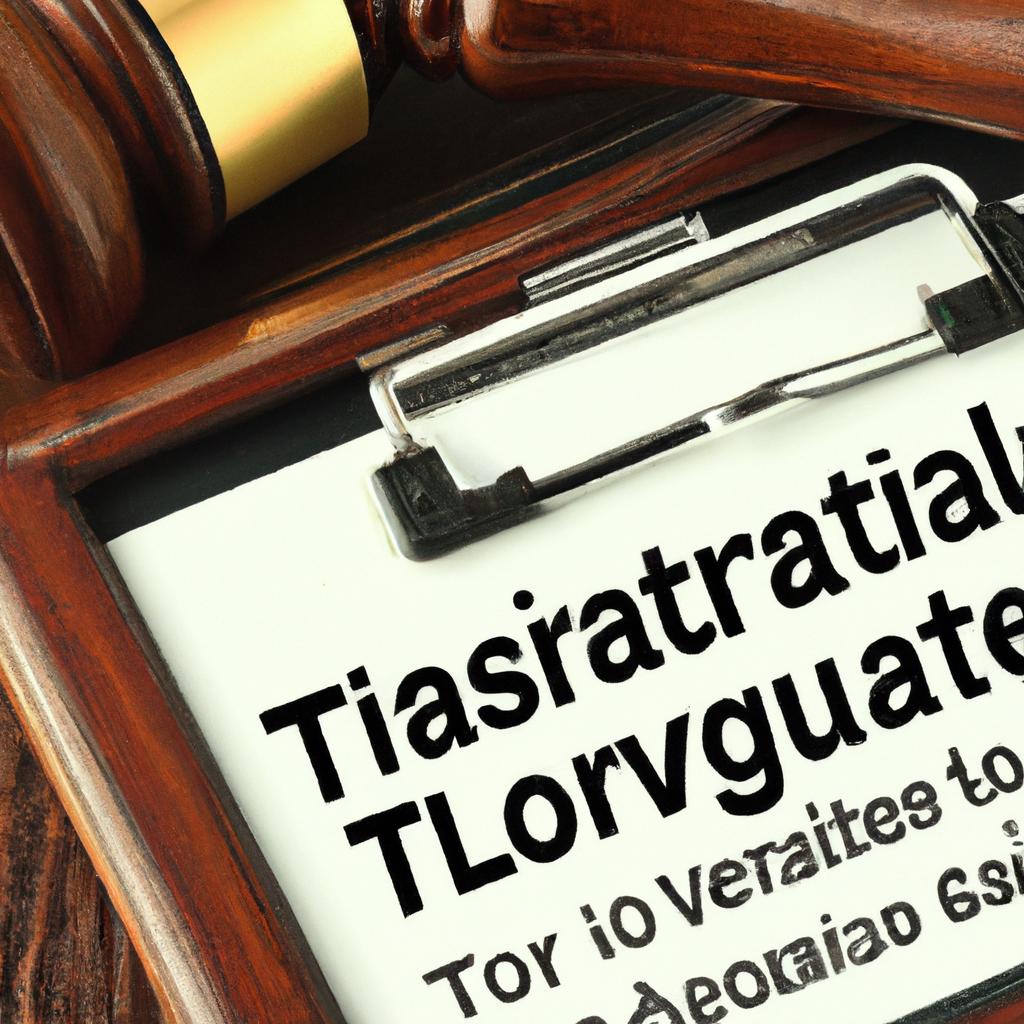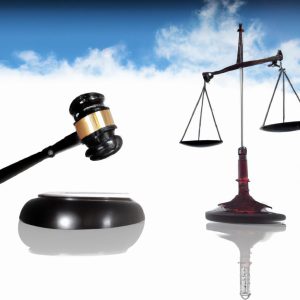As purveyors of legal wisdom in estate planning, probate, elder law, Wills, and trusts, the role of a trustee is an essential component in the framework of safeguarding one’s assets for future generations. At Morgan Legal Group, nestled in the vibrant city of New York, we are poised to delve into the dynamic world of trusteeship and illuminate its multifaceted responsibilities. Join us on a journey to unravel the intricacies of this pivotal position, and gain a deeper understanding of the duties and obligations that come with the title of trustee.
Key Responsibilities of a Trustee
As a trustee, your key responsibilities revolve around managing the assets and affairs of a trust for the benefit of the beneficiaries. It is essential to understand the duties and obligations that come with this role to ensure the proper administration of the trust.
Some of the main responsibilities of a trustee include:
- Acting in the best interest of the beneficiaries: It is crucial for a trustee to always prioritize the well-being of the beneficiaries and make decisions that will benefit them.
- Managing trust assets: Trustees are responsible for managing and investing the trust assets wisely to generate income for the beneficiaries.
- Keeping accurate records: It is essential to maintain detailed records of all trust activities, including financial transactions, distributions, and communications with beneficiaries.

Understanding the Fiduciary Duties of a Trustee
As a trustee, you hold a position of great responsibility and trust. Your main duty is to manage and distribute the assets of a trust in accordance with the terms laid out in the trust document. It is crucial to understand and adhere to the fiduciary duties that come with this role in order to fulfill your obligations ethically and legally.
Some key fiduciary duties of a trustee include:
- Duty of Loyalty: As a trustee, you must always act in the best interests of the beneficiaries and prioritize their needs above your own.
- Duty of Prudence: You are required to manage the trust assets with care, diligence, and sound judgment to ensure they are protected and grow over time.
- Duty of Impartiality: Treat all beneficiaries fairly and impartially, without favoring one over another.

Navigating Legal and Financial Obligations as a Trustee
As a trustee, you hold a critical role in managing the legal and financial affairs of a trust on behalf of the beneficiaries. Your responsibilities are governed by state laws and the terms of the trust document itself. It is essential to understand the duties and obligations that come with being a trustee to ensure compliance and protect the interests of the beneficiaries.
Some key responsibilities of a trustee include:
- Managing trust assets prudently and in accordance with the trust document
- Distributing trust income and principal to beneficiaries as required
- Maintaining accurate records of all trust transactions
- Filing trust tax returns and paying any taxes owed
| Example Trustee Duties: | Details: |
|---|---|
| Investing Trust Assets | Ensure investments are diversified and in line with the trust’s objectives |
| Communicating with Beneficiaries | Provide regular updates on trust performance and respond to beneficiary inquiries |
| Resolving Disputes | Address any conflicts or disagreements among beneficiaries promptly and impartially |

Strategies for Effective Trust Management
When it comes to managing a trust, the role of a trustee is crucial in ensuring that the wishes and best interests of the trust creator are carried out. A trustee is tasked with overseeing the trust assets, making important financial decisions, and distributing trust funds to beneficiaries. In essence, the trustee is a fiduciary who holds a legal responsibility to act in the best interests of the trust and its beneficiaries.
One key strategy for effective trust management is to maintain open communication with all involved parties. This includes keeping beneficiaries informed about the trust’s progress, addressing any concerns or questions they may have, and ensuring transparency in all financial matters. Additionally, it is important for trustees to always act in a trustworthy and impartial manner, putting the interests of the trust above their own personal interests. By following these principles, trustees can help ensure that the trust is managed effectively and in accordance with the trust creator’s wishes.
Q&A
Q: What is the role of a trustee?
A: A trustee is responsible for managing assets on behalf of a trust, ensuring they are used for the benefit of the beneficiaries according to the terms of the trust.
Q: How does someone become a trustee?
A: To become a trustee, a person is usually designated in the trust document or appointed by a court if no trustee is named. They must be willing to take on the role and have the necessary skills and expertise to fulfill their duties.
Q: What are the duties of a trustee?
A: The duties of a trustee include managing trust assets, making decisions in the best interests of the beneficiaries, keeping accurate records, and reporting to the beneficiaries as required by law.
Q: Can a trustee be held legally responsible for their actions?
A: Yes, a trustee can be held legally responsible for any wrongdoing or mismanagement of trust assets. They have a fiduciary duty to act in the best interests of the beneficiaries and must comply with all applicable laws and regulations.
Q: How long does a trustee serve in their role?
A: The length of time a trustee serves can vary depending on the terms of the trust. Some trustees may serve for a specific period of time, while others may serve until the trust is terminated or a new trustee is appointed.
Q: What qualities should a trustee possess?
A: A trustee should possess honesty, integrity, sound judgment, financial acumen, and a willingness to fulfill their duties diligently. They should also be able to communicate effectively with beneficiaries and other parties involved in the trust.
In Summary
As we conclude our exploration of the role of a trustee, it becomes evident that their responsibilities are vast and varied, ranging from managing assets to acting in the best interest of beneficiaries. It is a role that requires a combination of legal expertise, financial acumen, and ethical integrity.
Ultimately, trustees play a crucial role in ensuring that trusts are administered effectively and that the wishes of the settlor are carried out. By fulfilling their duties diligently and with care, trustees can provide peace of mind to those who entrust them with managing their assets.
In a world where trust is paramount, the job of a trustee remains a vital component in the realm of estate planning and asset management. It is a role that requires dedication, attention to detail, and a commitment to upholding the trust placed in them.
So, the next time you hear of a trustee, remember the importance of their role and the impact they have in safeguarding the interests of others. Trust in them, for they hold the key to preserving and protecting the legacies of those who came before us.
 What Is the Job of a Trustee?
What Is the Job of a Trustee?
When it comes to estate planning and wealth management, trustees play a crucial role. They are responsible for managing trust assets, making important decisions, and ensuring that the wishes of the grantor (the person who created the trust) are carried out. While the role of a trustee may seem complex, understanding their job and responsibilities is crucial for anyone entering into a trust agreement.
In this article, we’ll dive into the world of trustees to understand their job, responsibilities, and how they navigate the legal and financial intricacies of managing a trust. So, if you’re wondering “what is the job of a trustee?” keep reading to find out.
What Is a Trust?
Before we delve into the specifics of a trustee’s job, it’s essential to understand what a trust is and how it works. A trust is a legal agreement that allows a third party, known as the trustee, to hold and manage assets on behalf of a beneficiary or beneficiaries. Trusts can be created during a person’s lifetime or as part of their will, and they can serve different purposes, such as providing financial support for family members or charitable donations.
The trustee has a fiduciary duty, which means they must act in the best interests of the beneficiary and follow the terms set out in the trust agreement. Trusts are a valuable tool in estate planning and can provide benefits such as asset protection, tax planning, and avoiding probate.
What Is the Job of a Trustee?
Now that we have a better understanding of what a trust is let’s explore the specific duties and responsibilities of a trustee. These can vary depending on the type of trust, the grantor’s wishes, and state laws, but generally, a trustee’s job includes the following:
1. Managing Trust Assets
One of the primary responsibilities of a trustee is managing the assets within the trust. This can include making investment decisions, paying bills, managing real estate, and distributing income or principal to beneficiaries. Trustees must manage these assets carefully, always keeping in mind the long-term goals of the trust and the well-being of the beneficiaries.
2. Communicating with Beneficiaries
Trustees are required to communicate with beneficiaries and keep them informed about the trust, its assets, and any distributions. Beneficiaries are entitled to information about the trust, and trustees must provide them with periodic accountings. Additionally, if beneficiaries have any questions or concerns, it’s the trustee’s job to address them promptly and accurately.
3. Making Important Decisions
Trustees must make important decisions for the trust, such as determining how assets should be invested, how much income should be distributed, and when to make distributions to beneficiaries. These decisions should always align with the trust’s goals and terms and take into consideration the best interests of the beneficiaries.
4. Keeping Accurate Records
Trustees have a responsibility to keep accurate and organized records of all trust transactions, including income, expenses, and distributions. This information is vital for tax purposes and can also serve as evidence of the trustee’s actions in case of any disputes.
5. Acting in the Best Interests of Beneficiaries
As mentioned earlier, trustees have a fiduciary duty to act in the best interests of the beneficiaries. This means that they must put the beneficiaries’ needs before their own and always act with honesty, loyalty, and skill. Trustees must also avoid any conflict of interest and disclose any potential conflicts to beneficiaries and the court.
6. Following State Laws and Trust Terms
Trustees must also comply with state laws and the terms set out in the trust agreement. State laws dictate the standards of care and conduct that trustees must follow, while trust terms outline the specifics of how the trust should be managed and assets distributed. It’s crucial for trustees to understand and adhere to both these sets of rules to fulfill their duties successfully.
7. Working with Professionals
Trustees often work with a team of professionals, such as attorneys, accountants, and financial advisors, to manage the trust’s assets effectively. These professionals can provide valuable expertise and guidance, and it’s the trustee’s job to collaborate and make decisions based on their recommendations.
The Benefits and Practical Tips for Trustees
Being a trustee is a significant responsibility, and it’s crucial to take it seriously and fulfill all duties to the best of your ability. If you’re a trustee or considering becoming one, here are some key tips to keep in mind:
– Understand the trust agreement: A clear understanding of the trust’s goals and terms is essential for effective management.
– Keep accurate records: Maintaining organized records will not only assist with fulfilling accounting duties but can also help avoid potential disputes.
– Seek professional advice: As mentioned earlier, working with professionals can provide valuable guidance and support for trustees.
– Communicate with beneficiaries: Keeping beneficiaries informed and addressing any concerns can help prevent misunderstandings and conflicts.
– Act in the best interests of beneficiaries: Fulfilling the fiduciary duty is critical for acting in the best interests of the beneficiaries and avoiding any personal gain or conflict of interest.
Real-Life Experience: The Case of the Rockefeller Family Trust
To better understand the role of a trustee, let’s look at a real-life example. In 1934, the Standard Oil Company founder, John D. Rockefeller, Jr., created a trust for his family’s benefit. The trust, known as the “Rockefeller Family Trust,” was managed by trustees and provided financial support and guidance to the family for generations.
The trustees of the Rockefeller Family Trust were responsible for preserving and growing the trust’s assets while maintaining the family’s privacy and providing for their needs. Over the years, the trust has adapted to changes in the family’s needs and has helped maintain the Rockefeller’s legacy for decades.
In Conclusion
Trustees play a vital role in managing and distributing assets through trusts, ensuring the wishes of the grantor are carried out and the beneficiaries’ needs are met. Their job involves taking care of trust assets, making important decisions, and communicating with beneficiaries, all while following state laws and trust terms. By understanding their duties, adhering to best practices, and seeking professional advice, trustees can effectively fulfill their responsibilities and help preserve and grow assets for future generations.






